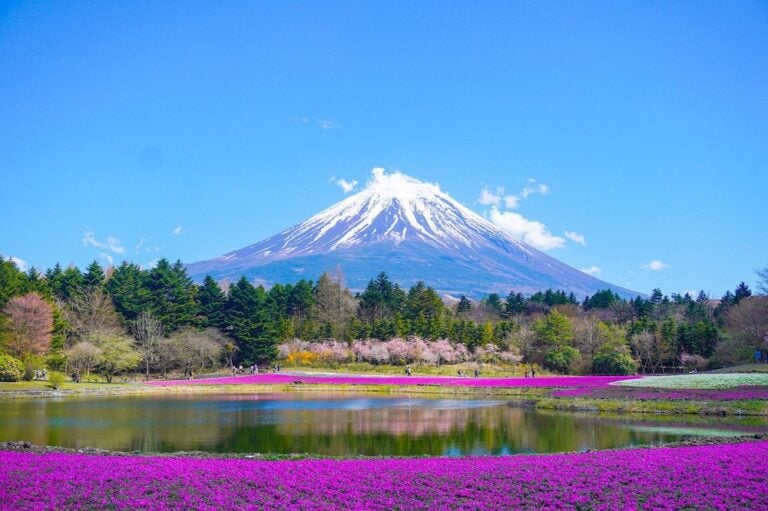
If you’re considering traveling to Japan on your own, you’re in for an exciting and memorable experience! Japan is great for the solo travelers as it has both beautiful cultural attractions, mouthwatering delicacies, welcoming people, and is one of the safest countries in the world to visit. Whether it is a serene August release in the mountains or a late-night walk through the bright lights of Tokyo here’s how to get the most out of a solo holiday.
Why Go Solo Traveling in Japan?
Japan is a dream destination for solo travelers, and for good reason. First off, Japan’s transportation system is incredibly efficient, with trains and buses that make it easy to navigate. Plus, internet access is widely available—Wi-Fi spots and mobile data options are accessible, keeping you connected no matter where you wander. And perhaps most importantly, Japan has one of the lowest crime rates in the world, making it ideal for solo travelers or anyone who values a safe adventure. You’ll find that solo travel here is not only feasible but can be incredibly enriching.
Do Enough Research of the Place
Before you set off, make sure you know the must-visit spots in each destination. Researching each location helps you prioritize, whether it’s a historic shrine, a popular shopping district, or a scenic mountain. For example, cities like Kyoto have many famous sites that can take time to explore, so knowing which temples or gardens to prioritize can make your experience more enjoyable. You’ll also save time by learning about public transportation options, popular food spots, and seasonal events. In addition, check out local etiquette—like bowing when greeting or removing shoes indoors—to ensure a respectful and smooth experience.
Make an Itinerary
While spontaneity is one of the joys of solo travel, a basic itinerary can be a lifesaver. List the places you want to visit and group them by area to avoid extra travel time or missing out on nearby sights. Take note of opening hours, travel time and any charges in case most of the attractions include charge or are by cash or have timing slots. By preparing a rough schedule, you can get the most out of every day, and still allow for resting in cafés or finding something interesting. If your schedule seems too tightly set, keep some gaps in between that can be used for simple wandering around.

Use the Internet
Internet access will be your best friend while traveling solo in Japan. Use it to navigate, locate nearby restaurants, and check out popular destinations. Google Maps really shines in Japan because in addition to showing you the route on the map, it also tells you which train to take, how many times to change and which platform the train can be found on – all in English. Many locations update their websites with new guidelines or seasonal hours, so it’s worth checking for any changes. Staying informed will help you avoid disappointment or unexpected closures, and make your trip smoother.
Prepare Cash and Card
Japan remains a largely cash-based society, especially in rural areas or small shops. ATMs are available in convenience stores, but not all accept foreign cards, so plan ahead for cash needs. It’s best to keep a mix of cash and card, especially for emergencies. Most larger cities and tourist destinations accept major credit cards, but always check in advance. You may find yourself needing cash for things like temple entry fees, bus fares, or small meals. Having a ready cash flow will keep you prepared for any situation, especially if you’re venturing off the beaten path.
Bring Your Essentials
When traveling solo, always carry essentials: your camera, your phone, your wallet and a power bank that will charge your devices. The seasonal changes in Japan make it possible that weather may change at short notice so it is advisable to carry a small first aid kit, water if going out in the summer, and an umbrella. A little snack here and there is very useful when hiking or when you are in areas where food is scarce at that particular time. Insect repellent is particularly important because there are lots of insects in rural areas and forests. Bring along your prescription and over the counter medicines, and or any allergy kits if you cannot tell if the country offers the medicine that you need.
Booking a Place to Stay
For overnight stays, booking accommodations in advance will spare you last-minute stress. Third-party sites like Agoda or Booking.com are great for comparing rates and filtering by area, but also check the hotel websites themselves, as some offer discounts or perks for booking directly. Japanese hotel staff are often helpful with local recommendations, so don’t hesitate to ask them for tips. Also, many hotels are able to provide Japanese breakfast meals or have more interesting services apart from the local, making the trip even more authentic.
Have Power Banks Ready
Charging your devices is very important during travels, especially when you are alone. A good power bank ensures you don’t miss photo opportunities, GPS directions, or emergency contacts. Japanese convenience stores have power banks for sale in case you left yours behind but it is recommended to bring your own. You’ll use your devices frequently for navigation, translation apps, and more, so having backup power will prevent you from running into issues.

Buy a Memorabilia
A nice trinket, an omiyage, or a key chain or post card can go down very nicely as a memento of a good trip. Japan has a unique souvenir culture, with region-specific items like Hida beef-themed trinkets in Gifu or Hello Kitty souvenirs in Tokyo. Handmade souvenirs, local confectionery, ceramic toys or tea services are also perfect if you have friends who like collecting such products. These small trinkets allow you to take part of Japanese culture home with you which give an insight into the various unique moments that make up your journey.
Check the Weather Forecast
Japanese weather can be just as strange as it is unpredictable, check the forecast before heading out. Not all attractions are open during rainy days, the drier seasons can also have rainy days. Always pack a rain coat or a compact umbrella even if the forecast says it won’t rain. In addition, seasonal changes can affect operating hours or event availability, so checking the weather can help you prepare for any adjustments needed in your plans.
Let a Friend Know
Despite Japan being a relatively safe country, it’s never a bad idea to let someone know where you are, especially if you’re staying overnight in a remote place. Sharing your whereabouts with a friend or family member gives everyone peace of mind in case of any unexpected events. You can get around using a shared itinerary or just send a quick message of your daily plans and accommodations. Japan’s mountains and rural areas may have spotty reception though, so it’s all the more important to let somebody know just where in this case.
Make Memories
Although photos and videos share Japan’s beauty, make sure to fully be present with every moment. If you want to know Japan is at its best, there is nothing like experiencing Japan’s most breathtaking scenes with your own eyes, be it cherry blossoms in spring or visiting the country at the most vibrant scene — autumn leaves. I have memories not only on my phone but in my heart of my travels around Hakone, Tsukuba, Okutama, and Kawagoe. Going out and meeting people and visiting new places, all of that builds memories that will stick with you way after your period of travel comes to an end.
Solo traveling in Japan is incredibly rewarding, offering personal discoveries and unique adventures at every corner. With a little preparation and a sense of adventure, you’ll find yourself immersed in this beautiful country, creating memories that will last a lifetime. This guide will help you realize all the more that Japan is a great destination for every kind of traveler, whether you love dense cities or ancient temples, comfortable Ryokan or outdoor exploration. Stay safe, explore freely, and savor each moment of your Japanese journey.













